Australia weather: Fierce winds batter southern states and snap pier
- Published
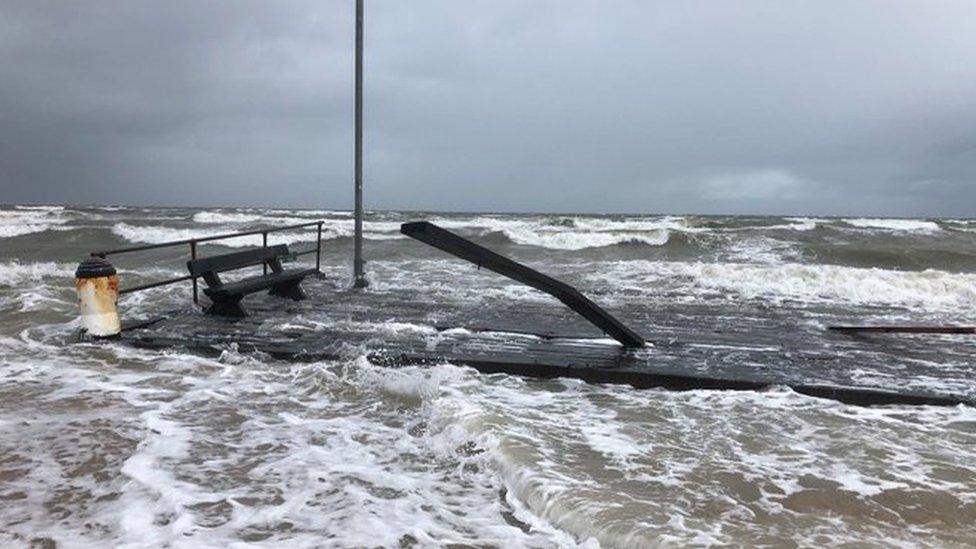
Images posted online showed part of a pier in Melbourne washing up on a beach
Destructive winds have battered Australia's south-eastern states, causing road accidents, power cuts and snapping the end off a popular pier.
Dozens of flights from airports in Sydney and Melbourne were also cancelled on Friday as winds gusted up to 120km/h (75mph) in some areas.
Authorities said part of the Frankston Pier in Melbourne had broken off as gales whipped up rough seas.
Meteorologists called it the region's coldest weather system of the year.
"The last time south-eastern Australia saw a system of this intensity was in 2014," a spokesman from the Bureau of Meteorology told the BBC.
The bureau said the icy conditions made it feel like the temperature was below 0C in areas of Victoria, the worst-affected state on Friday.
In the Melbourne suburb of Frankston, locals shared images online of the section of pier drifting in Port Phillip Bay before washing up on the beach.
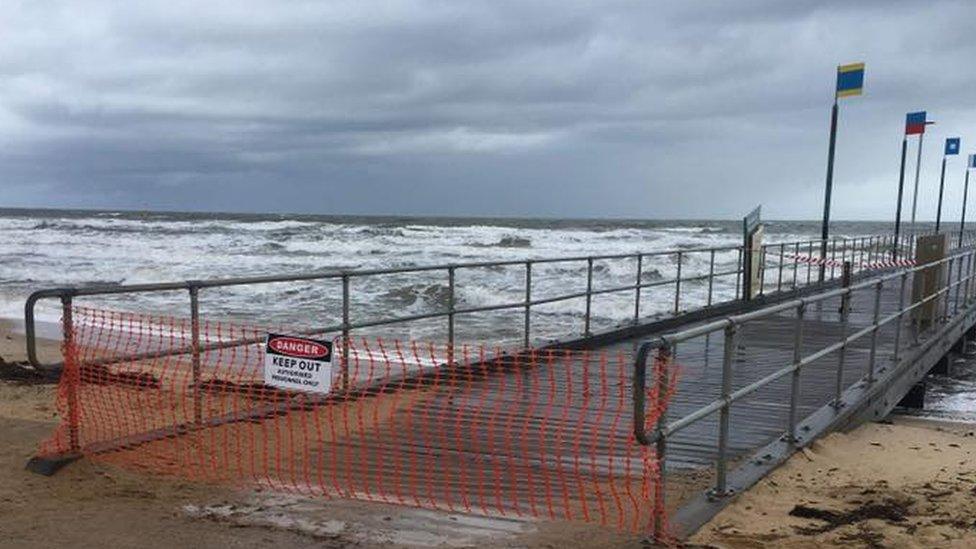
The Frankston Pier was damaged in the rough surf
The storm also affected parts of South Australia and New South Wales, bringing down power lines and trees.
More than 8,000 houses in South Australia were without power after thunderstorms swept through the state on Thursday. Emergency services in Victoria said they had fielded more than 400 calls for help.
In one case, four people were trapped when a falling tree crushed their car on a road outside of Melbourne, prompting a rescue operation.
Authorities issued blizzard and avalanche warnings for alpine areas in Victoria and New South Wales, which have received heavy snowfall.
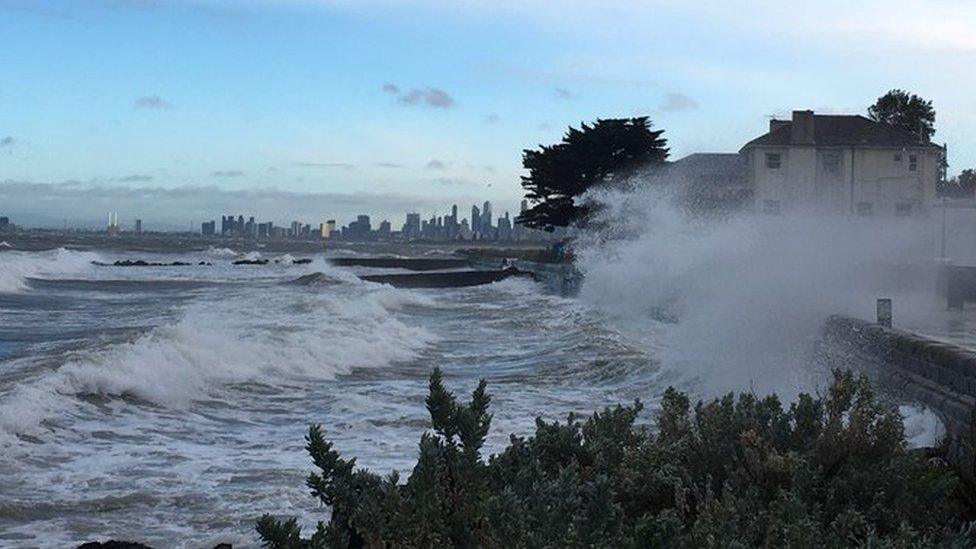
Melbourne experienced its coldest day of the year on Friday
Motorists have also been urged to take caution.
"Hazards include damaged buildings, trees down, fallen power lines, debris and coastal erosion," read one warning from authorities.
Australia has experienced several extreme weather events in the past year, including floods, bushfires and cyclones.
In February, 'once in a century' rains caused severe flooding in Queensland
It also continues to be ravaged by a prolonged drought which has put significant strain on rural communities.
The severe weather on Friday came as thousands of university students across the country planned to skip lectures to hold protests against inaction on climate change, inspired by similar actions involving school students.
- Published1 March 2019
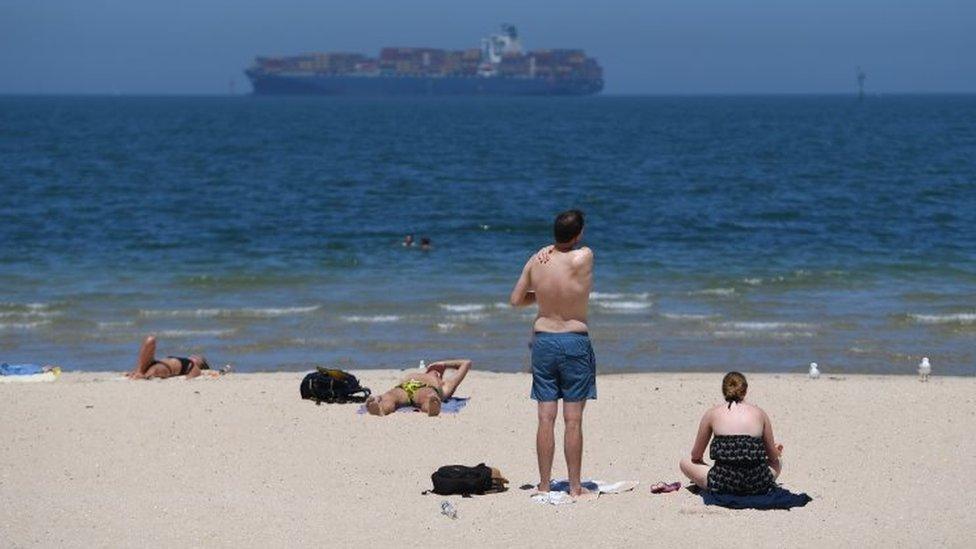
- Published13 May 2019
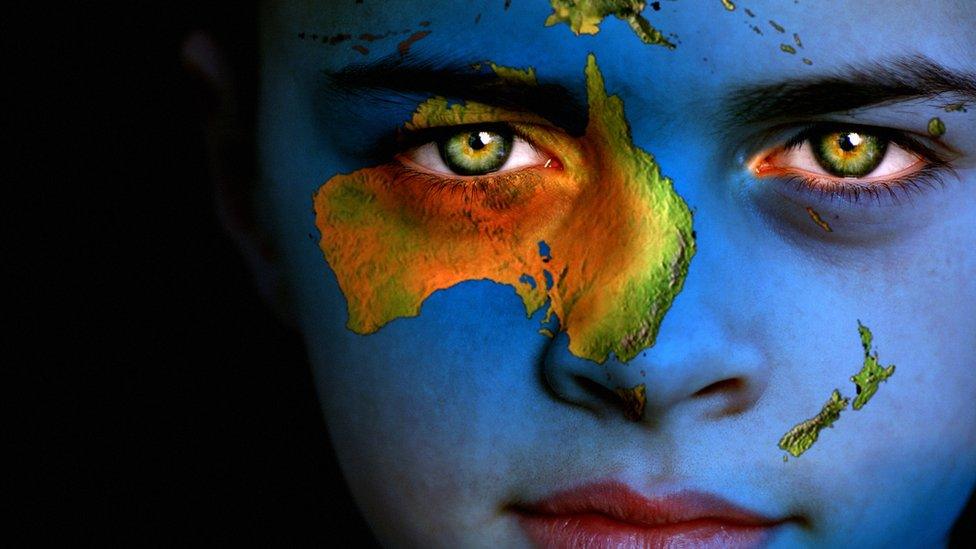
- Published13 January 2018
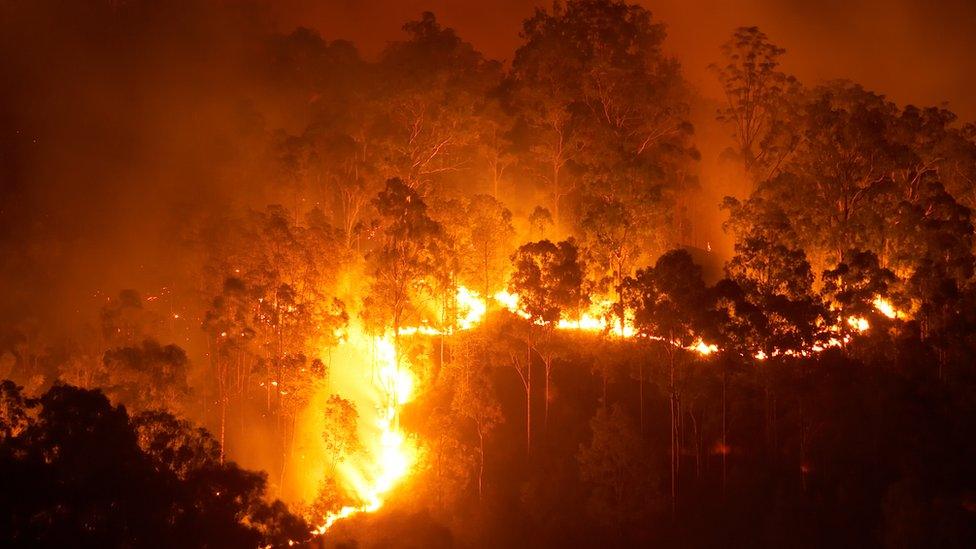
- Published26 July 2019
